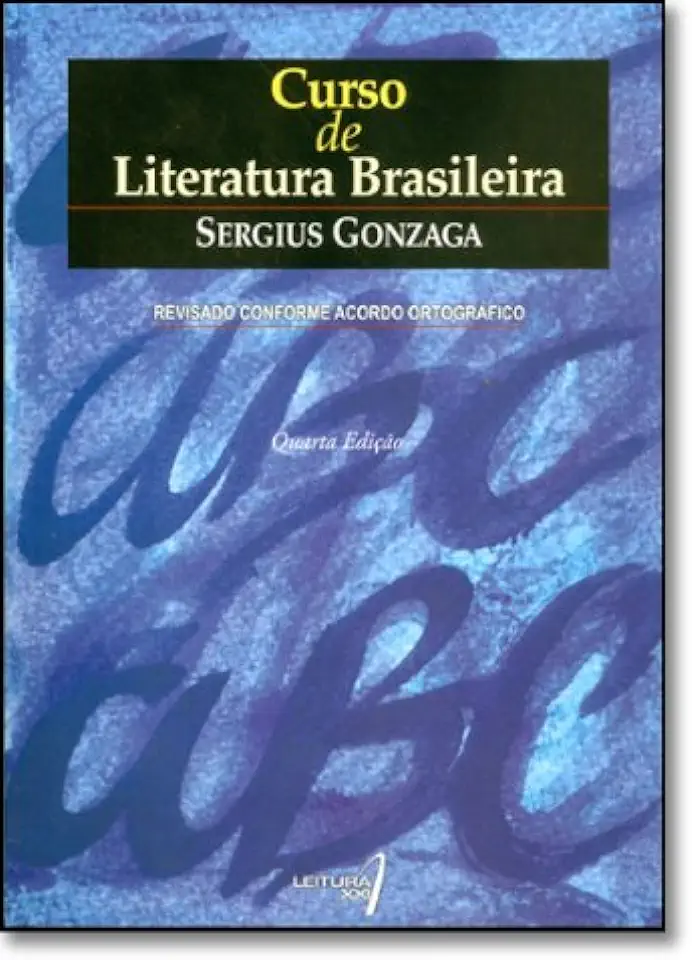
Brazilian Literature Course - Sergius Gonzaga
Brazilian Literature Course: A Comprehensive Guide to Brazilian Literature
Introduction
Brazilian literature is a rich and diverse tapestry of stories, poems, and plays that have captivated readers for centuries. From the early chronicles of the Portuguese explorers to the modern masterpieces of contemporary writers, Brazilian literature offers a unique perspective on the world and its people.
A Brief History of Brazilian Literature
The history of Brazilian literature can be divided into several distinct periods:
- The Colonial Period (1500-1822): This period saw the emergence of the first literary works in Brazil, mostly written by Portuguese explorers and missionaries. These works often focused on the natural beauty of Brazil and the lives of the indigenous people.
- The Romantic Period (1822-1880): This period was marked by a surge of nationalistic sentiment and a focus on Brazilian themes and culture. Some of the most important writers of this period include José de Alencar, Machado de Assis, and Aluísio Azevedo.
- The Modernist Period (1880-1945): This period saw a break from traditional literary forms and a focus on experimentation and innovation. Some of the most important writers of this period include Mário de Andrade, Oswald de Andrade, and Clarice Lispector.
- The Contemporary Period (1945-Present): This period has seen a continuation of the modernist tradition, as well as the emergence of new literary movements such as the Tropicalist movement and the Post-Modernist movement. Some of the most important writers of this period include João Guimarães Rosa, Jorge Amado, and Paulo Coelho.
Major Themes in Brazilian Literature
Brazilian literature is characterized by a number of recurring themes, including:
- National Identity: Brazilian writers have long been concerned with defining what it means to be Brazilian. This theme is often explored through the lens of race, class, and gender.
- Social Justice: Brazilian literature has a strong tradition of social activism, and many writers have used their work to address issues such as poverty, inequality, and human rights.
- Magical Realism: Magical realism is a literary genre that blends realistic and fantastical elements. It is a common feature of Brazilian literature, and it is often used to explore the complex realities of Brazilian society.
- Love and Relationships: Love and relationships are a central theme in Brazilian literature, and they are often explored in the context of family, friendship, and community.
Why Read Brazilian Literature?
There are many reasons why you should read Brazilian literature. Here are just a few:
- To gain a deeper understanding of Brazilian culture: Brazilian literature offers a unique window into the culture and history of Brazil. By reading Brazilian literature, you can learn about the country's complex social and political issues, as well as its rich cultural traditions.
- To enjoy great storytelling: Brazilian literature is full of great stories, from historical epics to contemporary comedies. Whether you're looking for a gripping thriller or a heartwarming romance, you're sure to find something you enjoy in Brazilian literature.
- To support diversity in literature: Brazilian literature is a valuable addition to the world of literature, and it deserves to be read by people all over the world. By reading Brazilian literature, you can help to support diversity in literature and ensure that the voices of Brazilian writers are heard.
Conclusion
Brazilian literature is a rich and rewarding literary tradition that has something to offer everyone. Whether you're a fan of history, culture, or great storytelling, you're sure to find something you enjoy in Brazilian literature. So what are you waiting for? Start reading Brazilian literature today!